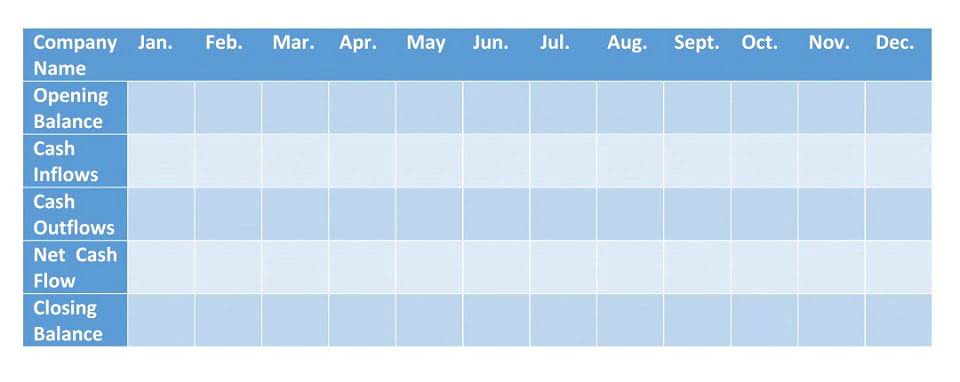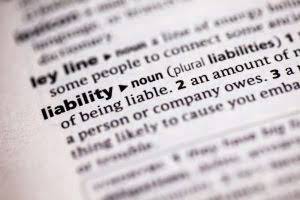OBI Releases Report on Oregon’s Business Tax Burden

If you pay for any benefits from your employer, such as health or life insurance, any premiums you pay will come out of your paycheck. Contributions you make to a retirement plan, like a 401(k), or to a medical expense account, like a health savings account (HSA), will also come out of your paycheck. That’s money that your employer removes from your pay before taxes are applied. While putting money in these accounts shrinks your paycheck, it also lowers your taxable income (and, in the case of retirement accounts, simultaneously helps secure your financial future). Although there is a late penalty for both failing to file a personal tax return and failing to pay the total tax liability by the original due date of the return, only one of these penalties will be applied if there is a failure of both requirements.
- Revenue from the property tax typically goes to support local services such as schools and law enforcement.
- Leading drivers of state-level tax increases include the corporate activity tax, which taxes gross receipts, and the Paid Leave Oregon program, which taxes payroll.
- To determine if your business address is located in the Metro jurisdiction, visit the Metro Boundary Address Lookup tool.
- A 12,000-square-foot clubhouse, 556 single-family and attached homes, and a convenient location reflect just some of the appealing aspects of this well-established community.
- There are a few other deductions that can impact the size of your paychecks.
- If you pay for any benefits from your employer, such as health or life insurance, any premiums you pay will come out of your paycheck.
Delinquent Taxes

Oregon was one of the first Western states to adopt a state income tax, enacting its current tax in 1930. It consists of four income tax brackets, with rates increasing from 4.75% to a top rate of 9.9%. Only a small subset of taxpayers actually pays that rate, however, as it applies only to petty cash single taxpayers making at least $125,000 a year ($250,000 for joint filers). The table below shows the full tax brackets and rates for the state income tax in Oregon. Refunds for the City of Portland, Multnomah County, and Metro business taxes are generally issued within 8-10 weeks after the complete tax return is filed (with supporting tax pages). Due to high volumes of mail, tax returns filed in March/April and September/October may require additional time for a refund to be issued.
Personal Income Tax Filing and Payment Information
Reduce speeding through better street design as well as more enforcement including red light and speed cameras. Portland and its 55+ communities offer many benefits to the active adults who choose it as their retirement destination. From pleasant weather to mild taxes to unique attractions, the city has become a verified retirement hotspot in the Pacific Northwest. A taxpayer having one or more of the following is doing business in the City of Portland, Multnomah County, and/or Metro and must register for a Revenue Division tax account.

Enter your taxable income from Form OR-40, line 19. Do not use periods or commas.
Revenue from the property tax typically goes to support local services such as schools and law enforcement. Oregon has a progressive income tax that ranks among the highest in the nation. The average effective property tax rate is about average, though, ranking as the 26th-highest rate in https://x.com/bookstimeinc the country. Oregon’s property tax system is moderately competitive, though the property tax burden relative to personal income is higher than in California and Washington. Additionally, the state imposes an estate tax with a maximum rate of 16 percent and the lowest estate tax exemption among states that levy the tax ($1 million), which further reduces the state’s competitiveness for high-net-worth individuals.
Menu for Personal Tax
- Oregon’s Corporate Activity Tax is a gross receipts tax, meaning that it is imposed on businesses’ gross rather than net income.
- The race between Rubio and Gonzalez represents more than an ideological battle.
- The information contained herein is general in nature and is not intended, and should not be construed, as legal, accounting or tax advice or opinion provided by Ernst & Young LLP to the reader.
- This new W-4 now includes a five-step process that allows you to indicate any additional income or jobs, as well as other pertinent personal information.
- Contributions can be in the form of cash, property or expenses you incur from any volunteer work.
In this case, you can deduct any claim right of income repayments over $3,000. Generally, you’re allowed to take a deduction for real estate taxes you’ve paid, up to $10,000 ($5,000 oregon state income tax if married filing separately). Oregon doesn’t allow married people filing separately to take the standard deduction if their spouse has chosen to itemize their deductions. The payment plan due date is the 10th or the 25th of the month, at least 16 days after the date the payment plan was set up. Quarterly underpayment interest is calculated using the interest rate in effect for each quarter that payments are late or less than the amount due. Electronic filing is only available for select software programs at this time.
- To request a filing extension, you must submit an extension payment by the original return due date for an automatic six-month filing extension.
- The state uses a four-bracket progressive state income tax, which means that higher income levels correspond to higher state income tax rates.
- In 1993, the City of Portland and Multnomah County achieved code conformity and joint administration of the two separate programs.
- Oregon was one of the first Western states to adopt a state income tax, enacting its current tax in 1930.
The health of Oregon’s private sector is vitally important, as businesses employ hundreds of thousands of people and generate the tax revenue state and local governments need to provide public services. Later this year, OBI will release a collection of recommended policy changes that will address the underlying causes of Oregon’s slipping competitiveness. They will address the state’s tax climate, its regulatory climate and the political culture that has contributed to their erosion. Oregon’s state business taxes increased by $3.4 billion – 77% – between 2019 and 2023, according to an analysis of Oregon’s state and local business tax burdens commissioned by the Oregon Business & Industry Research and Education Foundation. The study, conducted by consulting firm EY, also found that local taxes paid by Portland businesses have increased a stunning 82% since 2019. High-income earners in Portland face a combined top marginal rate of almost 14.78 percent on their wage income and 13.9 percent on investment and other unearned income not derived from an ownership stake in a pass-through business.
Revenue Division Customer Service Center

These and other taxes have increased Oregon’s effective business tax burden by 33% since 2019. The state business tax burden now exceeds the national average by 12%, according to EY. A state’s effective tax burden is the ratio of business taxes to private-sector gross state product. Multnomah County changed from requiring a business license to assessing a business income tax in 1976. In 1993, the City of Portland and Multnomah County achieved code conformity and joint administration of the two separate programs.







